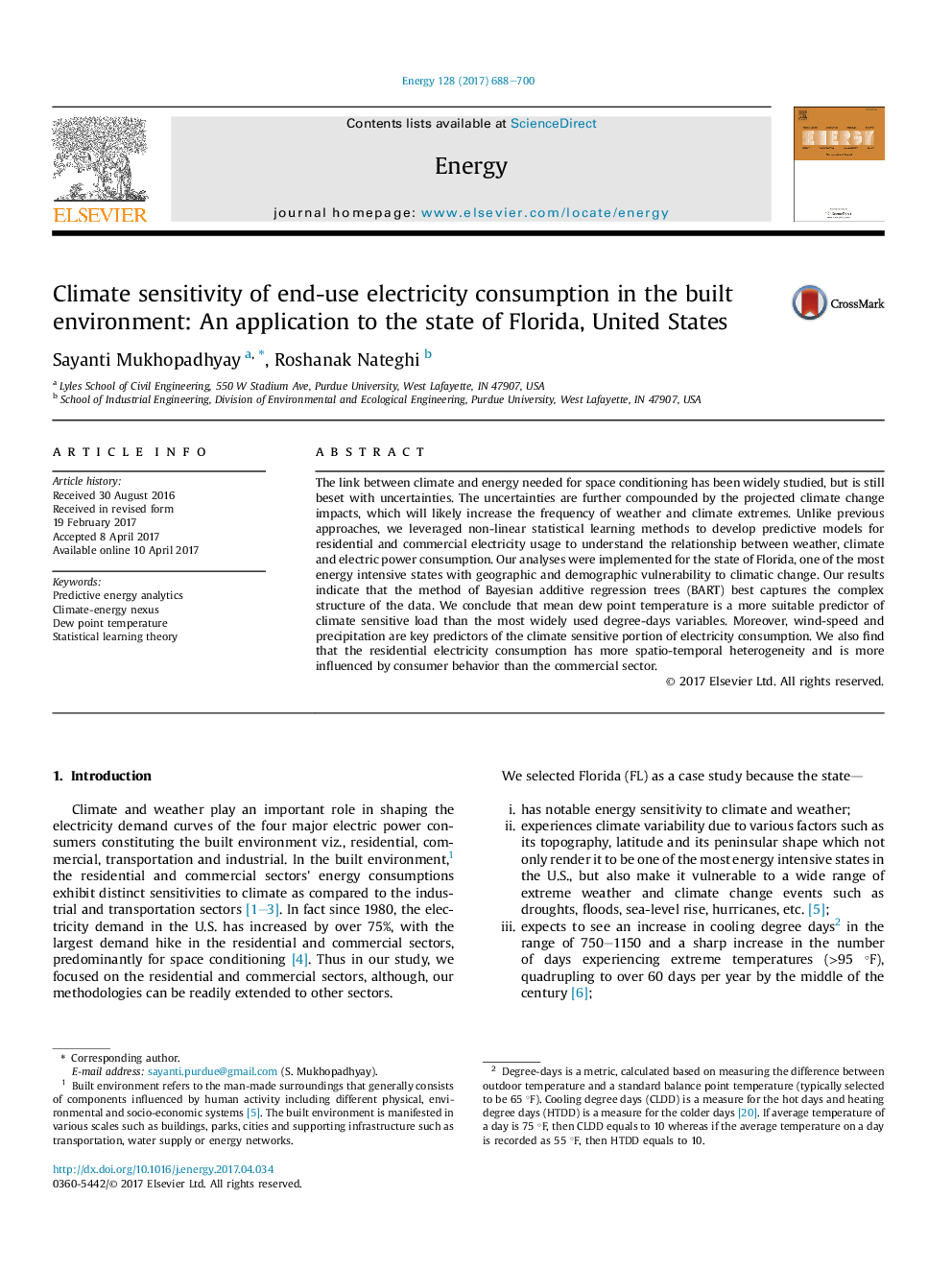| Article ID | Journal | Published Year | Pages | File Type |
|---|---|---|---|---|
| 5476062 | Energy | 2017 | 13 Pages |
Abstract
The link between climate and energy needed for space conditioning has been widely studied, but is still beset with uncertainties. The uncertainties are further compounded by the projected climate change impacts, which will likely increase the frequency of weather and climate extremes. Unlike previous approaches, we leveraged non-linear statistical learning methods to develop predictive models for residential and commercial electricity usage to understand the relationship between weather, climate and electric power consumption. Our analyses were implemented for the state of Florida, one of the most energy intensive states with geographic and demographic vulnerability to climatic change. Our results indicate that the method of Bayesian additive regression trees (BART) best captures the complex structure of the data. We conclude that mean dew point temperature is a more suitable predictor of climate sensitive load than the most widely used degree-days variables. Moreover, wind-speed and precipitation are key predictors of the climate sensitive portion of electricity consumption. We also find that the residential electricity consumption has more spatio-temporal heterogeneity and is more influenced by consumer behavior than the commercial sector.
Related Topics
Physical Sciences and Engineering
Energy
Energy (General)
Authors
Sayanti Mukherjee, Roshanak Nateghi,
